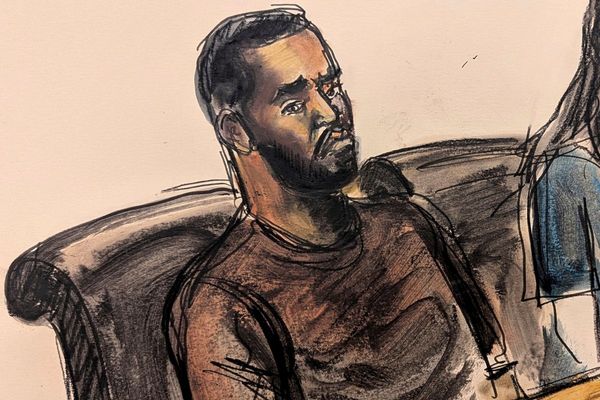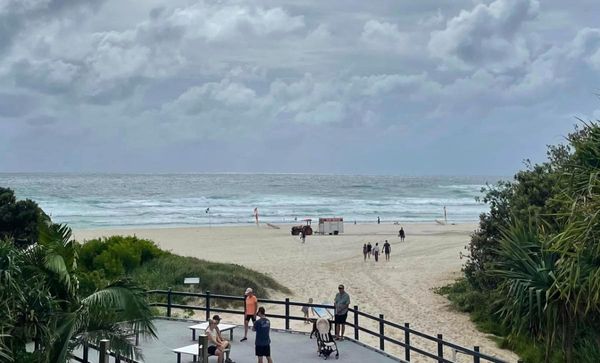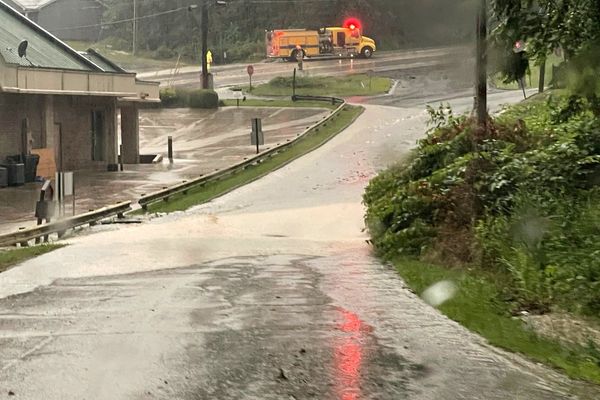North Carolina Central coach LeVelle Moton has a message for white Power 5 coaches in the wake of George Floyd’s murder at the hands of a former Minneapolis policeman.
Moton said Sunday on ESPN Radio that many such coaches have profited off African-American athletes yet remain “silent” when black men are murdered at the hands of the police.
“The reality is a lot of these coaches have been able to create generational wealth,” Moton said Sunday on ESPN Radio’s Sunday Morning. “Their grandkids’ kids are gonna be able to live a prosperous life because athletes who were the complexion of George Floyd were able to run a football, throw a football, shoot a basketball or whatever have you so they have been able to benefit from athletes that look like George Floyd and many more. But whenever people [who are] the complexion of George Floyd are killed, assassinated, murdered in the street in broad daylight, they’re silent.”
Floyd, 46, was killed by former Minneapolis police officer Derek Chauvin last Monday after Chauvin held his left knee on Floyd’s neck for for 8 minutes, 46 seconds — 2 minutes, 53 seconds of which occurred after Floyd was non-responsive. Chauvin was charged Friday with third-degree murder and second-degree manslaughter. No charges have yet been brought against the other three officers at the scene.
Floyd’s murder has sparked protests and riots nationwide, with several athletes involved in peaceful protests.
Jaylen Brown of the Boston Celtics drove 15 hours from Boston to Atlanta to protest, while Ohio State’s Seth Towns was detained by police Friday night for peacefully protesting. He was later released.
A number of high-profile white football and basketball coaches have issued comments condemning Floyd’s murder and offering support for their African-American athletes while saying they will personally work to further the dialogue on the nation’s racial divide.
On the basketball side, Ohio State’s Chris Holtmann, who is white, spoke out both before and after Towns was detained.
He added on Saturday: “We fully support our players’ right to peacefully protest. In the time I’ve gotten to know Seth, it’s clear that he has a heart for social justice. As I said in my statement yesterday morning, we will continue to openly discuss this within our program. We pray for safety in our city, state, and around the country.”
Hall of Famers including Michigan State coach Tom Izzo, Syracuse’s Jim Boeheim, UNC’s Roy Williams, Kentucky’s John Calipari and Kansas’ Bill Self have also commented.
Boeheim said everyone must work “together” to “eliminate injustice.”
Williams, who has won three NCAA titles, said we can “no longer tolerate what happened to George Floyd as a country.”
“The people of Minneapolis and others around the country who are peacefully protesting injustice have my complete support,” Williams’ statement read. “What happened to George Floyd and has happened elsewhere is a tragedy and is something that we can no longer tolerate as a country. I feel for the families that have lost their loved ones. It is unacceptable what is happening to our own citizens and needs to change immediately. But we have to come together. Deal with the problems and heal as one people.”
Jay Wright, who has won two NCAA championships at Villanova, issued a statement calling for “changes [to] our country to insure safety for all.”
Calipari said he’s had dialogue with his team about racial issues in this country.
Kansas’ Self said in part:
“It is incomprehensible that this level of racism still occurs in this day and age, and it’s unacceptable. Anyone possessing basic human kindness must support each other and stand up for those that have been oppressed for far too long.
“No one should have to worry that they will be treated differently, or worse yet fear for their lives on a daily basis, simply because the color of their skin or where they are from.
UConn coach Dan Hurley, who grew up in racially diverse Jersey City playing for his Hall of Fame father, Bob Hurley Sr., also issued a statement.
Purdue’s Matt Painter said he would “lead, teach and educate” on racial issues.
Arkansas’ Eric Musselman also emphasized the need to “fight racism.”
Among high-profile white football coaches, Alabama’s Nick Saban, Oklahoma State’s Mike Gundy, Oklahoma’s Lincoln Riley, Kansas’ Les Miles, North Carolina’s Mack Brown and Texas A&M’s Jimbo Fisher have all commented.
“We are all part of this and we must banish these types of injustices in not just our country, but our world,” Saban wrote. “The ultimate future of our nation is in our hands, and like the teams I’ve been privileged to coach, we must depend on and respect each other no matter our differences. We must come together as a society and treat one another with respect and dignity.”
Moton, meantime, says he still hears “silence” from too many white coaches when it matters most.
“I have a problem with [their silence] because it seems as if black lives matter to them whenever they can benefit from it or whenever they’re getting them first downs, catching an alley-oop or shooting a [3-pointer] or whatever,” Moton said. “When it’s time for humanity to speak up on behalf of the student athlete, it’s silent, it’s crickets. And my problem is if the murdering of black Americans is too risky of an issue for you to stand up as a leader, then who are they really playing for?”
This post has been updated.







